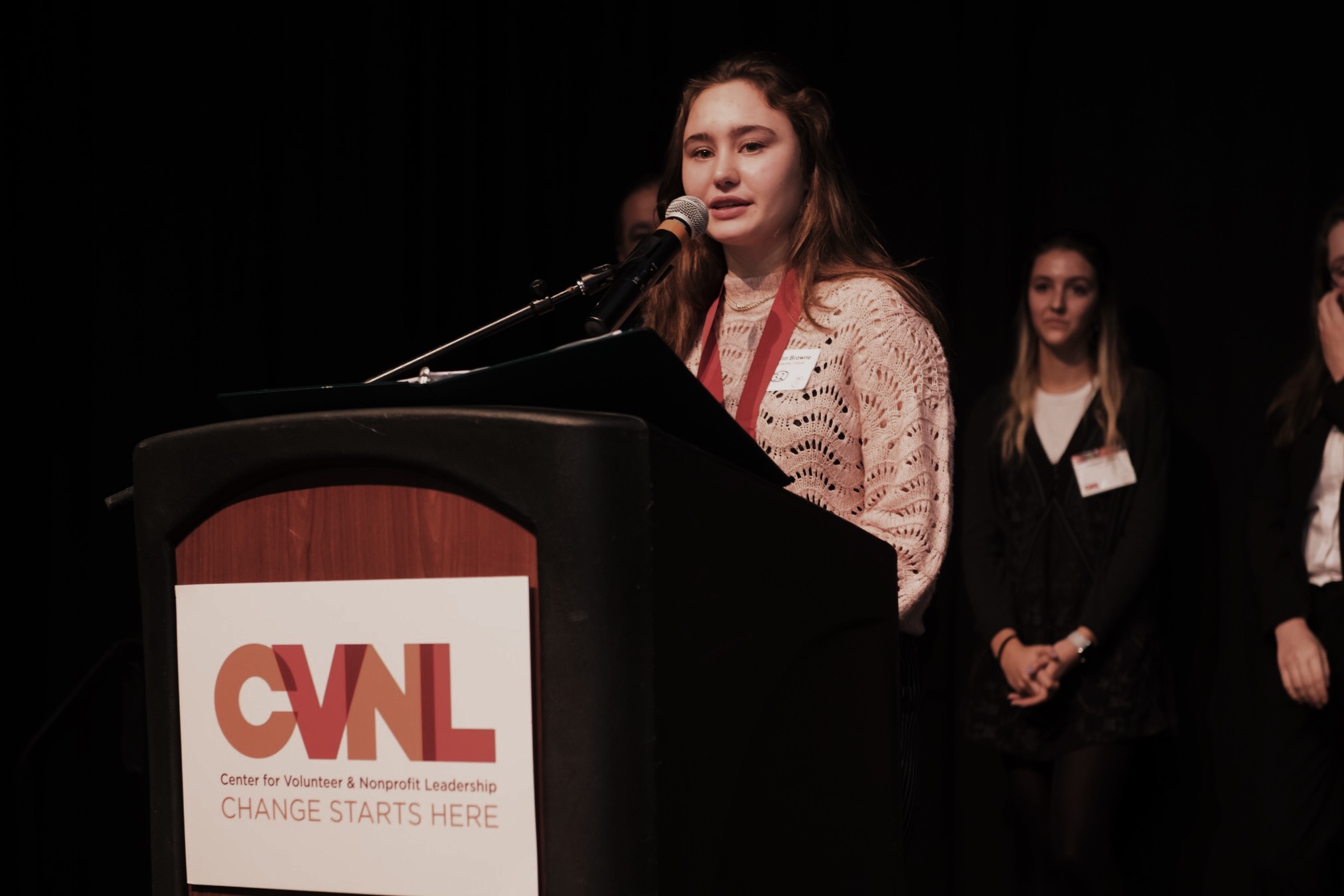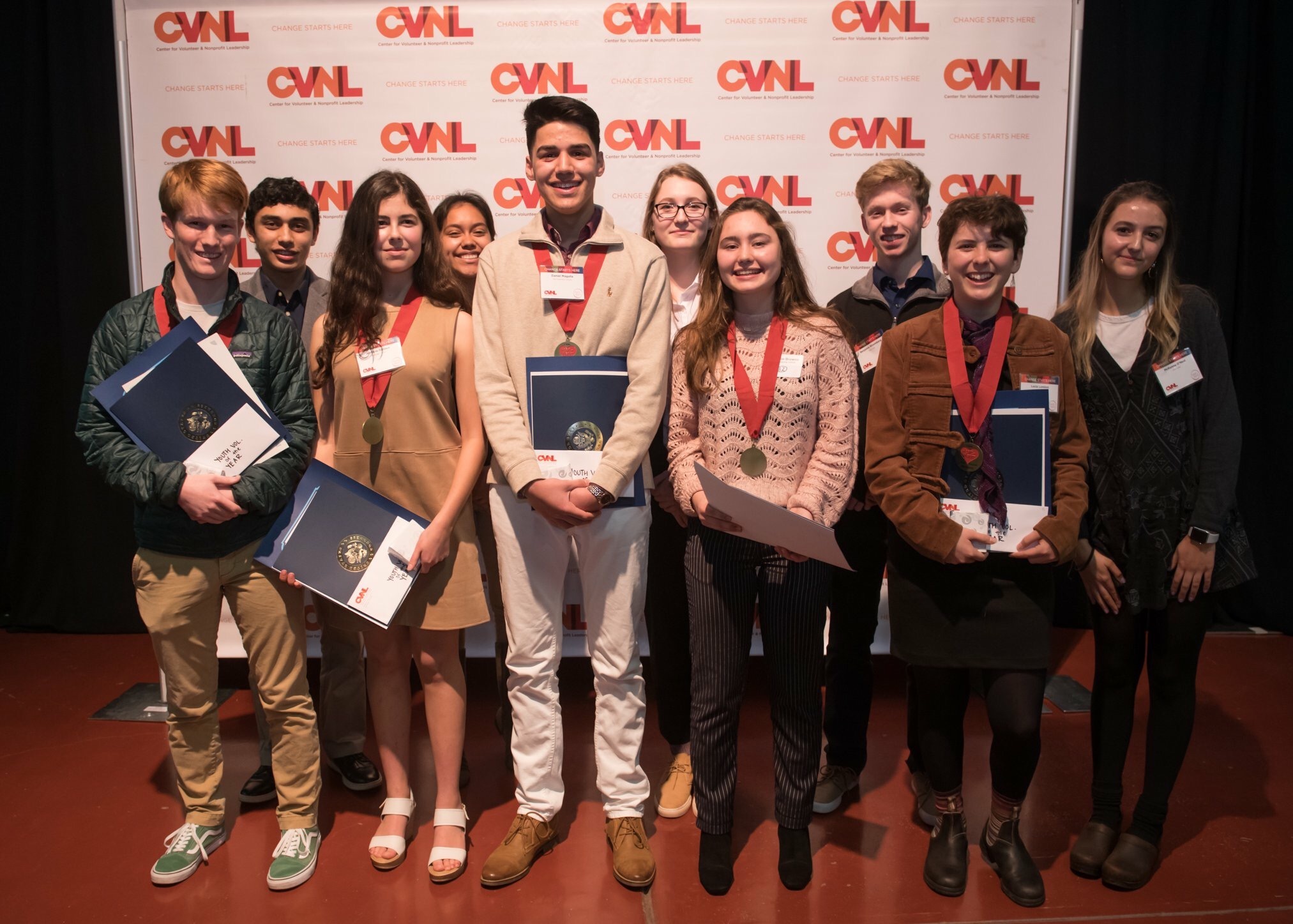
Two weeks ago, YLI’s very own Loughlin Browne was recognized at the annual Heart of Marin award ceremony for her outstanding service in the community of Marin. In the following interview, she talks about her work on the Marin County Youth Commission‘s Racial Equity sub committee, which eventually landed her on the stage to accept the Volunteer of the Year award.
Why did you decide to participate in the Racial Equity sub-committee specifically?
Racial equity has always been a really important issue to me. I think especially as a white person in a society that obviously I have a lot of privilege in, it’s really important to do advocacy in the areas where you do have privilege. I do a lot of stuff with feminism and LGBT rights that impact me personally, but I wanted to do more for things where I’m not necessarily the target. I think a big part of advocacy is using the privilege and the advantages that you’re given to raise the voices of those who aren’t listened to or taken as seriously. I think a big part of it is also making sure that those voices have room – making room, giving them the microphone, and stepping aside.
It sounds like you have been involved in social justice work for some time. What stood out to you this past year with YLI? What was surprising, inspiring, or challenging?
This was a really great year for youth activism across the country with Parkland. I think youth activism is super inspiring. There are a lot of youth activists online, and that’s actually how I learned about a lot of the terminology of privilege, oppression, and target groups. I’ve talked with my family and researched online, but a lot of it was social media accounts run by teenagers and young millennials.
On the other hand, I’ve seen a lot of apathy, which was surprising in a different way. I run youth phone banks for the democratic party. We pick progressive candidates that are running close races in close elections across the country and we make calls. It can be really hard to find people who want to get involved, which can be discouraging.
What other projects have you been working on?
I have an Instagram account where I post about a bunch of current events – my opinions, explaining things like: “here’s how the wage gap is real, and here’s how it disproportionately affects women of color, disabled women – not just white, able-bodied upper middle class women.” Defining terms that people don’t understand or explaining, for example, about transgendered people, and why it’s important to use the pronouns they prefer. The questions that people have when they’re good-intentioned and want to learn. I have 850 followers on Instagram. I started about a year ago. I also do some communications for Marin Young Democrats. I’m the chief administrator for them so I run their social media – that’s an under 40 group in Marin.
How do you think adults will receive trainings from young people? Do you anticipate any challenges?
It is definitely going to be a hard line to walk. Part of it might seem inherently condescending to have a bunch of young people, 15 years olds, talking to 45, 35 year olds. A lot of people might feel uncomfortable about that, but I think we could be really impactful. I know that everyone on the commission has taken the time to put in the research and get the knowledge, I think we’d do a good job. We’re looking for connections, we spoke to our Supervisor. We’re going to find ways to partner with people so we can have the right balance of respect but also respect for ourselves.
That’s a really important part of the work that we do. No one is paying my peers to do this – it is something they are genuinely interested in. We have a lot insight because of the environments that we live in and the different ways that we grow up – we get different messages, different forms of messaging. We have a unique perspective to bring to the table especially since – I know it’s cliché, but – the youth are our future. We’re going to be the ones who are going to be voting soon and that’s going to change the demographic. We’re eventually going to be the ones who perpetuate or progress through racism and other systems of inequality. We definitely bring unique perspectives
So how did it feel to be recognized for all of the work that you’re doing?
When I was listening to all of the names, I had a lot of friends who were nominated and everyone there has done such amazing work. It was really inspiring to be in a room with so many people who, even if they weren’t nominated, had been committed to doing really good things and putting good back into the world. I was really inspired to be there with all that energy and I was really honored that I ended up receiving the award. I know a lot of other people easily could have won it as well.

Was there a specific project for which you were recognized?
It was for the work on the youth commission and some tutoring that I do. A big part of it was some of the political groups that I do. That’s one of the more unique things – I started a group of student political volunteers. We do phone banking. Even though we can’t vote, we’re still just as invested and impacted by the elections. I think getting student involvement young is really important. The youth vote is so low. It’s really disappointing, so getting people involved early on is really important to ensuring that they are life-long voters.
Is there anything else you’d like to share about the award and what it means to you?
All the people in the Youth Commission and Wendy definitely deserve a lot of recognition. I’m really excited to see what everyone does throughout their lives. To have the opportunity and resources to be able to get involved like this is a privilege. Especially when it comes to racial equity, just me being a white person talking about racism, I notice the privilege that I get personally when I’m talking about it. People say “Oh my God, that’s so sweet of you!” where as if a person of color is talking about racism, sometimes the reaction can be either that they’re being self-serving or are wanting attention. Even in those situations, I’m always going to have some sort of privilege. I hope that the work we do can make people want to get involved, want to learn, and do the right thing. Maybe they don’t know how and maybe they need a push, and I hope they can be inspired to pursue it further, self-examine outside of the trainings that we’re doing.
I’m really excited to see what happens next.
